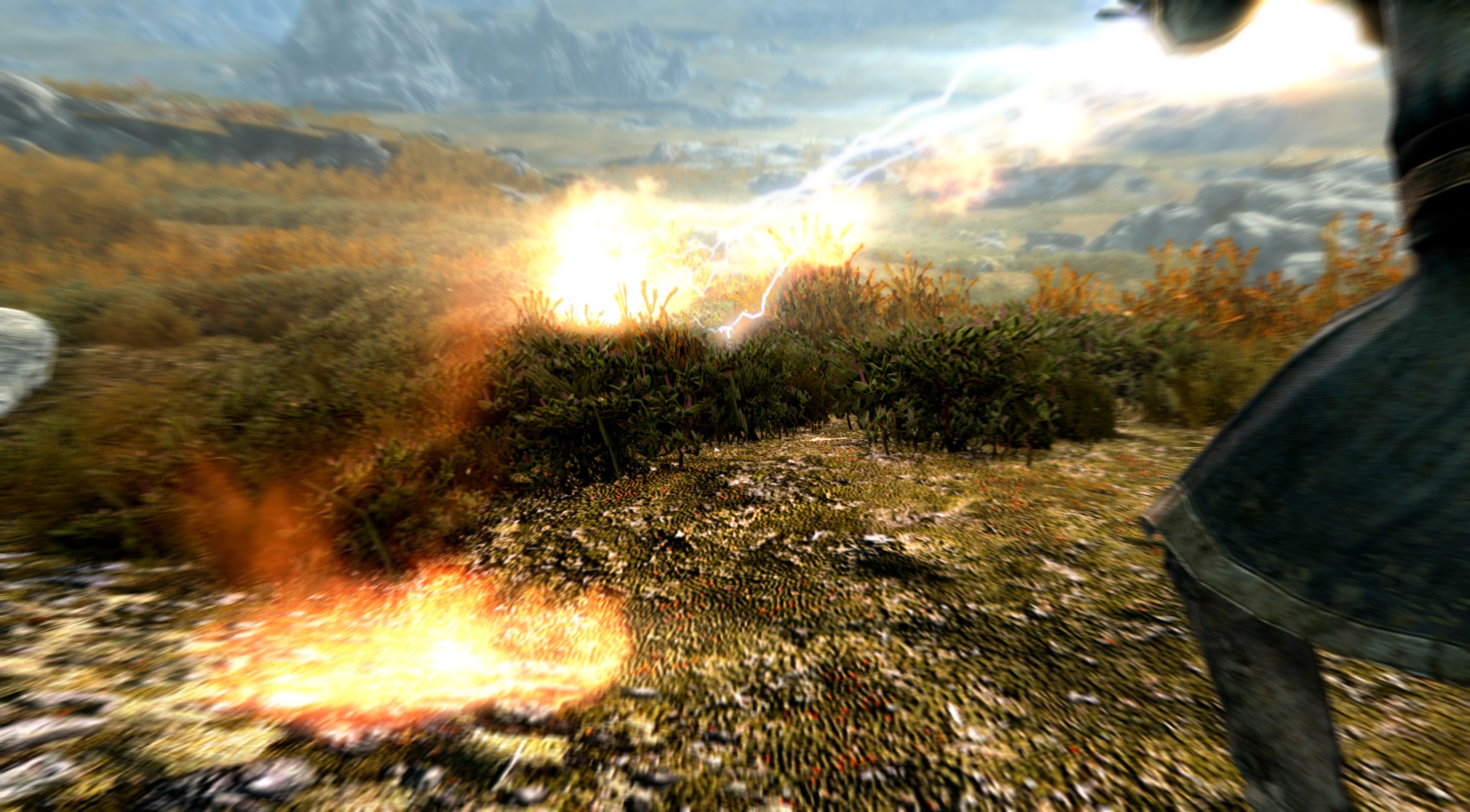
I bought Skyrim at launch at a Best Buy a few days after its November 11th, 2011 launch. My first character was an Orc mage. I don’t remember his name, but I’ll call him Orgnum gro-Magickar. Orgnum didn’t have a good time. He put all his level up points into magic and very few into health.
Because of this, when he went to go fight the final boss of the College of Winterhold questline in the depths of Labyrinthian, the Dragon Priest there drained him of all his magic. And all his health. The Mage’s Guild in Skyrim punishes you for going into magic, and I accidentally found one of the handful of ways to mess up your Skyrim character.
There’s nothing to optimize in character creation, and as long as you buy perks in a weapon type and pick health on leveling you’ll breeze through it even on the harder difficulties.
Imagine my surprise when I discovered that people actually go through and meticulously plan out their Skyrim builds! My first thought was: “Why?” “Why!”. The game doesn’t really punish you for any of your choices, and role-playing aside it doesn’t reward you either.
Eons ago, before Bethesda added legendary skills and prior to the level cap’s end, there could have been a reason. Planning out your perks so you don’t miss any. These days though? It’s hard for me to imagine the point.
I thought about it, and I thought about it. Now I think I know why I reacted the way I did. So what even is a Skyrim build?
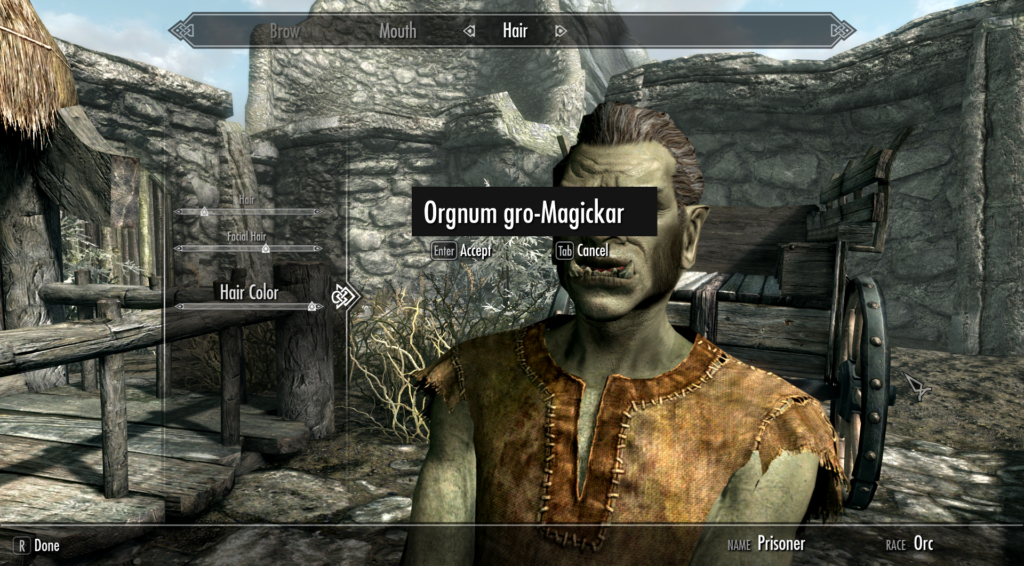
Let’s start with character creation. In Skyrim you will see your character name in the world. It appears in notes and writs and all of that. Consequently, Skyrim rewards you for picking a name that makes sense to you. It rewards you for role-playing. Even if only a little.
Mechanically, being a high elf also matters. This is because you get a bunch of free levels of magicka points.
So there are important choices to make at Skyrim’s start.
There aren’t many though. That is important. It is very different when compared to every Elder Scrolls title before it, and it shows us a massive shadowy chasm that cuts deep into the heart of computer role-playing games.
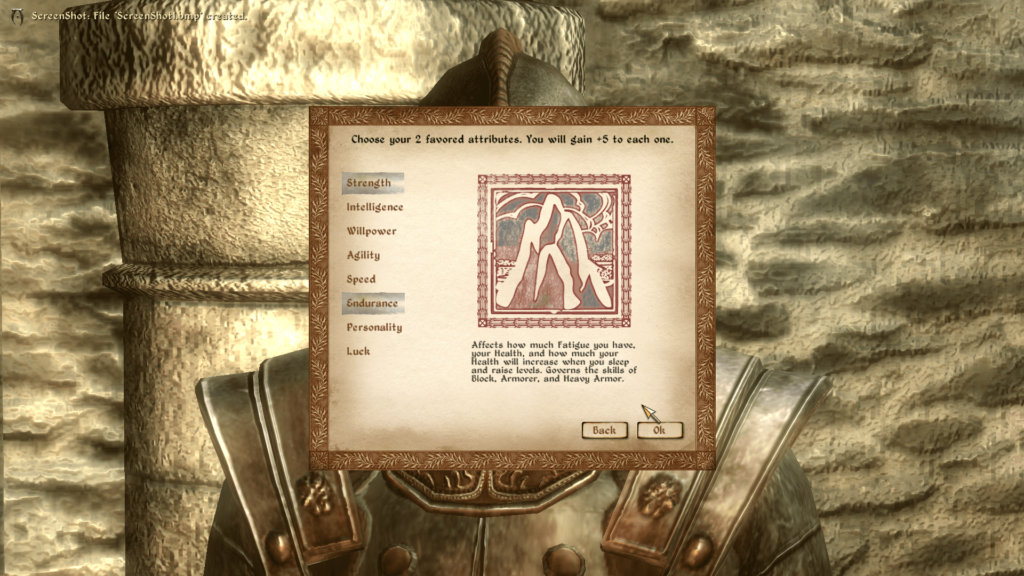
On either side of that chasm there are two games: dnd and Zork. dnd was an unlicensed ripoff of TSR’s fantasy role-playing game Dungeons and Dragons. The game was never super popular and never reached a mass audience, but it still serves as a shining example of the computer role-playing game. A lot of fantastic games would follow it and some, like the first Final Fantasy, were also unlicensed ripoffs of Dungeons and Dragons. Games like dnd have stats and level-ups and numbers, numbers, numbers!
Across that ravine are games like Zork. Zork, an early Dungeons and Dragons spoof, was an immensely popular text-based adventure game. No level ups, no stats, no numbers. Just a character, you, doing things, getting items and having an adventure. If you focus in on “adventure,” then another widely successful game in its mold was The Legend of Zelda.
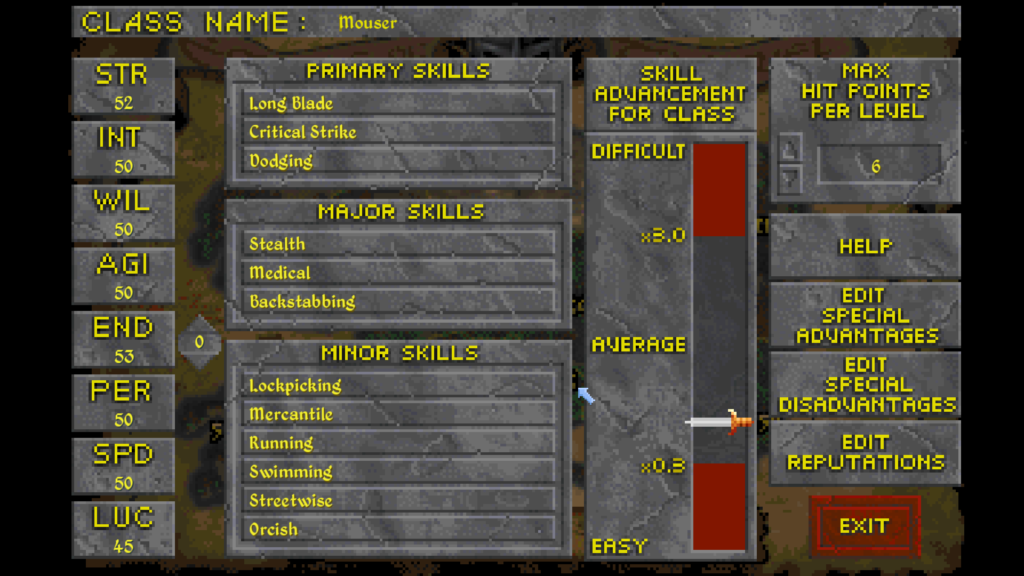
Elder Scrolls games before Skyrim were more like dnd. Skyrim is more like Zork.
In previous Elder Scrolls titles you picked your class, or, in Daggerfall, Morrowind, and Oblivion, you made your own. These classes influenced everything about your character. They defined your maximum level, what skills let you get there, and how skill growth would change your stats. They also defined which skills you started good at, which was very important in Daggerfall and Morrowind.
In Morrowind and Oblivion every NPC had a class too. Classes were integrated into the world. That peasant farmer wasn’t just a peasant, they were a third level peasant with a list of major and minor skills. Your class wasn’t just some abstraction, it was a real thing in the world that people had and helped your character fit into it.
In contrast, Skyrim is all about the adventure. You wander around the home of the Nords. and look for dungeons to loot and stuff to kill. There’re puzzles to solve. It’s got all the adventure game stuff. There are still RPG bits. You level up. You choose from a wide variety of upgrades that are intrinsic to your character. But, ultimately, none of them matter. Every Skyrim character basically works.
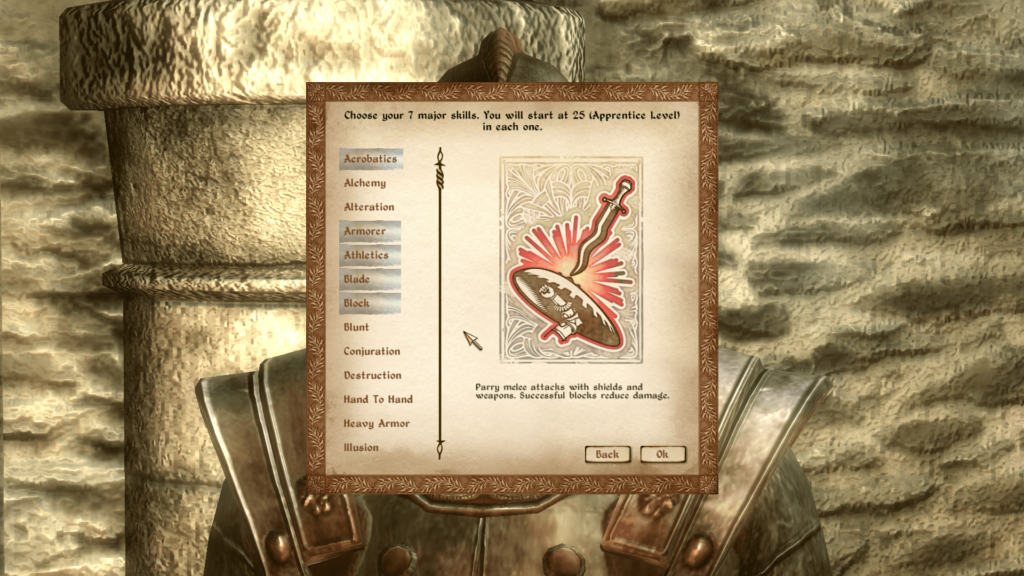
That’s where Skyrim builds differ from the builds in any other main-series Elder Scrolls game, or even from your 5e D&D game. In Skyrim, builds exist for role-playing and are a self-imposed challenge. They bring traditional RPG mechanics back into the game. You pick which skills you’re going to use, and you try to stick to them. You plan out some of your perks, and maybe a ratio rough ratio for your level up points, and your stick to
it. And, of course, you might pick a build modeled after something in the world. The build gets you out of the rut of always being a stealth archer or a melee spellsword.
In every other game with character builds, they are all about optimizing your character within your role-playing concept. You can do that in Skyrim too – but it doesn’t matter. There are few challenges, and little benefit from optimization.
In hardcore RPGs you’d have to do a lot of work getting your pure magic Orc mage to the point where they could meet the final boss. In Skyrim, you can get there and lose to him no problem. Because mechanics don’t matter much in Skyrim – nowhere near as much as what you want to do.